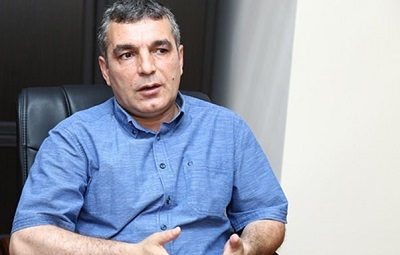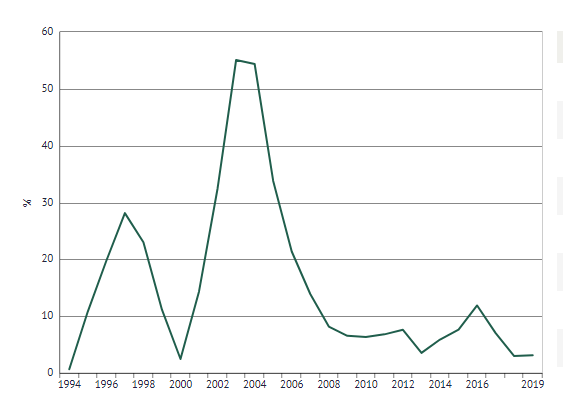
According to the UN report, the volume of foreign investments in Azerbaijan was $1.504 billion in 2019, against $507 million in 2020, executive secretary of the REAL party, economist Natig Jafarli wrote on his Facebook page. He believes that the sharp decline in investment last year speaks of an unattractive investment "climate" in the country.

To begin with, we have read the UN report referred to by Jafarli. This is a document called World Investment Report 2021, which was recently published by the United Nations Conference on Trade and Development (UNCTAD). UN experts indeed present in the report the figures he indicated: foreign direct investment (FDI) in the Azerbaijani economy amounted to $1.504 billion in 2019, and $507 million in 2020.
It is noteworthy that the report of such an authoritative international organization as the UN Conference on Trade and Development is based not on official data, but on information from third-party sources - The Financial Times Ltd, fDi Markets (www.fDimarkets.com.
Comparable data is featured on the Knoema website, which is positioned as the world's largest catalog of open and public data. The information on the site is based, inter alia, on data from the World Bank and the International Monetary Fund.
Meanwhile, the statistics of the Central Bank of Azerbaijan shows completely different figures than those that appear in the UNCTAD report.

Looking at the table, it becomes clear that the figures of the UN and the Central Bank of Azerbaijan are fundamentally different. So, according to the latter, the volume of foreign direct investment in the economy of Azerbaijan for the nine months of 2019 amounted to $4.527.7 billion, and in the same period last year - $4.275.2 billion. Thus, in 2020, FDI increased by 5.9%.
A year earlier, in 2018, foreign direct investment in the Azerbaijani economy amounted to $4.1 billion, down 28.1% compared to the previous year.
According to the Central Bank, foreign direct investment in the Azerbaijani economy amounted to $5.7 billion in 2017.
In 2016, foreign direct investment in the Azerbaijani economy amounted to $7.3 billion. Thus, in 2017, FDI decreased by 21.9%.
Despite the striking difference between the data of the Central Bank of Azerbaijan and the figures in the UNCTAD report, we will continue to find out whether the investment climate in the country is good or bad, since this is precisely the task we face.

On the graph table from the Knoema website, we see the dynamics of foreign direct investment in the economy of Azerbaijan, which, in general, coincides with the world trends in economic activity reflected in the forecast of the International Monetary Fund.
Reputable international organizations note a significant increase in Azerbaijan's attractiveness for foreign investors, including in the non-oil sector of the economy.
In 2020, the country took 41st place with 53 points in the rating of investment attractiveness of European countries, published by the European Chamber EuCham. Compared to 2019, Azerbaijan has advanced 3 steps.
In the same year, the World Bank (WB) improved Azerbaijan's indicators in the Doing Business report for 2020, Thus, Azerbaijan in the world ranking rose to 28th place (initially 34th place) among 191 countries and was included in the list of top 10 “reformer countries.”

Similar observations on the improvement of the investment climate in Azerbaijan are contained in the report of the US Department of State ‘2020 Investment Climate Statements: Azerbaijan.’
The document, in particular, notes that in accordance with the legislation of Azerbaijan, foreign investments enjoy full and unconditional legal protection and cannot be nationalized or appropriated. The Bilateral Investment Agreement (BIT) between the United States and Azerbaijan provides American investors with the opportunity to resolve investment disputes through the International Center for the Settlement of Investment Disputes (ICSID).
Returning to the UNCTAD report, which served as the starting point of our study, it refers to a significant decrease in FDI worldwide due to the macroeconomic recession caused by the consequences of the COVID-19. At the end of 2020, this figure was $1 trillion, against $1.5 trillion a year earlier. According to the organization, the inflow of foreign direct investment in countries with economies in transition in 2020 decreased by 77%, to $13 billion. This is the lowest level of capital inflows into the region since 2002. Against this background, the rate of decline in FDI in the economy of Azerbaijan - 66.1%, harmoniously fits into the general trend.
So, in the light of the above, we are convinced that the reduction in the inflow of foreign direct investment into the economy of Azerbaijan last year, which is mentioned in the UNCTAD report, even if it really happened, does not at all indicate a bad investment climate in Azerbaijan. In this case, the decline in FDI in Azerbaijan is quite consistent with the general trend of recession around the world, recorded by UNCTAD.
This is while the absence of this important aspect in the narrative we have considered clearly indicates its tendentiousness.




















